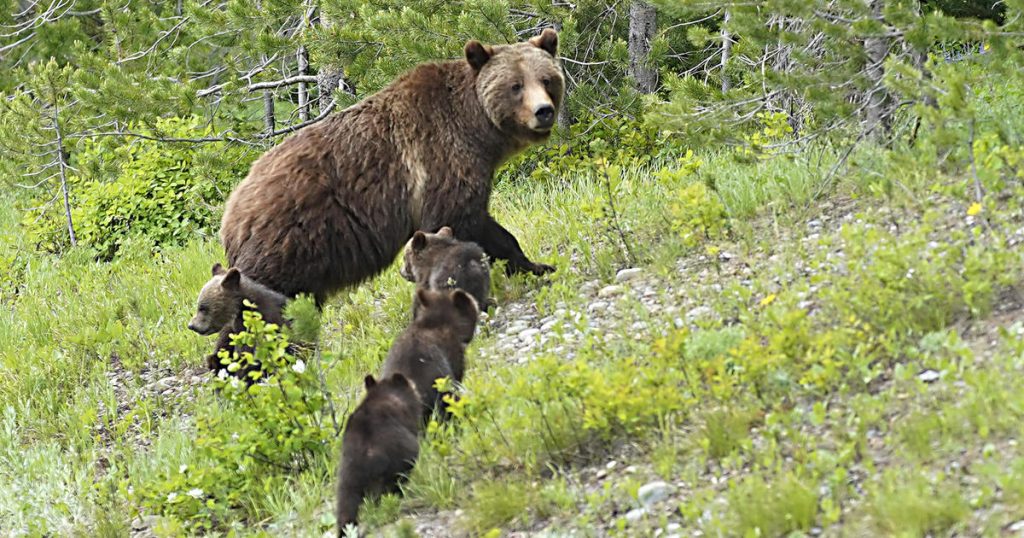A man from Massachusetts was injured in a grizzly bear attack in Wyoming’s Grand Teton National Park. The grizzly accidentally sprayed itself with bear repellent while attacking the man, causing it to flee. The man pretended to be dead during the attack and was able to get to safety. He spent the night in the hospital and was expected to make a full recovery. The decision was made not to capture or kill the bear, as it was believed to be protecting a cub.
The bear attack happened despite the victim carrying bear-repellant spray and making noise to alert bears in the forest. The man encountered a smaller bear that ran away from him, but soon after, a larger bear charged at him. He had no time to use his bear spray before falling to the ground and being attacked by the bear. The man was able to reach an area with cell phone coverage and call for help, leading to his evacuation to a nearby hospital.
Investigators suspect that the smaller bear the man saw was an older cub belonging to the female grizzly that attacked him. Mother bears aggressively defend their offspring and remain with them for two to three years after birth. The victim’s name was not released, but he was expected to make a full recovery. The attack in Grand Teton National Park was just one of several recent grizzly bear attacks in the region, highlighting the need for caution around these protected species.
Grizzly bears in the 48 contiguous states are protected as a threatened species by the U.S. Fish and Wildlife Service. The National Park Service announced a campaign to capture grizzly bears in Yellowstone Park for research purposes, urging the public to stay away from areas with traps. The man’s encounter with the grizzly bear serves as a reminder of the dangers of wildlife encounters and the importance of being prepared while exploring the wilderness. Despite the risks, these incidents also emphasize the need for conservation efforts to protect these majestic creatures and their habitats.














